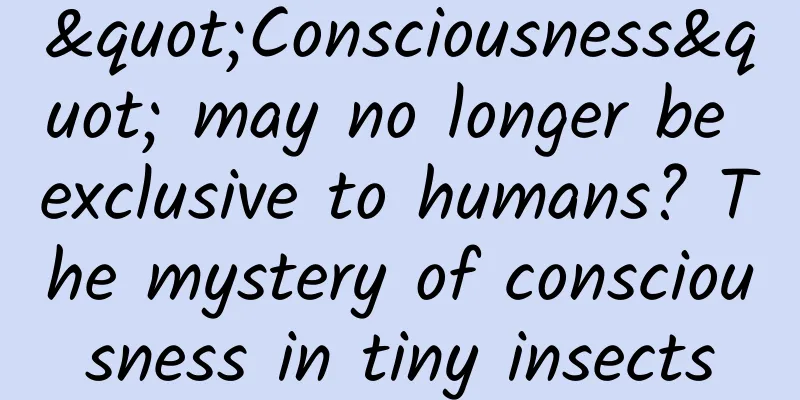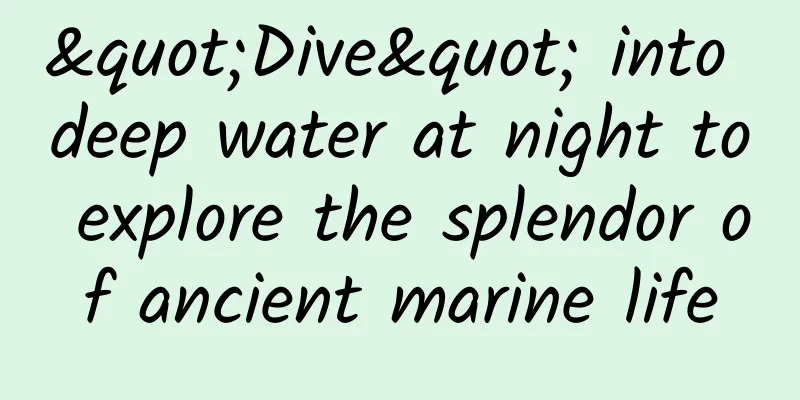"Consciousness" may no longer be exclusive to humans? The mystery of consciousness in tiny insects

|
Author: Duan Yuechu and Huang Xianghong Hey, have you ever thought about whether the insects around us, such as bees and flies, have their own inner life and consciousness? This is not a simple "yes" or "no" question, but a complex topic that scientists are seriously exploring. Recently, a statement signed by more than 40 scientists was released saying that the existence of elements of consciousness in reptiles, insects and mollusks is a "real possibility." Does it sound a bit like science fiction? But scientists say that as evidence accumulates, they are starting to take the topic seriously, rather than thinking it was a crazy idea as they did in the past. The statement said it would be irresponsible to ignore the possibility that animals have conscious experiences in decisions that affect them, and noted that there is also "strong scientific support" for consciousness in birds and mammals. So, what exactly is consciousness? Consciousness can be defined as the ability to have subjective experience, that is, the ability of an animal to perceive the world around it and feel fear, pleasure, or pain. But subjective experience does not require the animal to have the ability to think about its experience. However, animals cannot express their inner states verbally, so scientists usually rely on indirect evidence, such as observing the animals' behavior, to assess their consciousness. For example, some animals can recognize themselves in a mirror or display advanced cognitive abilities while performing tasks, which could be signs that they are conscious. So what about insects? Fruit flies, for example, switch between deep sleep and "active sleep," just like we do. This could be a clue that they might be conscious. And experiments have shown that octopuses avoid chambers that they've been exposed to painful stimuli, suggesting that they might experience and actively avoid pain, also a sign of consciousness. However, some scientists are skeptical of this evidence. They believe that complex perceptual behaviors in animals do not necessarily represent consciousness. The challenge now is to develop methods that can fully distinguish between conscious and unconscious perception in non-humans. This topic is complex, but it has important implications for the way we treat animals. If we believe animals are conscious, then we need to be more careful and respectful in how we treat them. And for scientists, this is also a good opportunity to stimulate more research and provide more funding for the field of animal consciousness. So, do insects have inner life? The answer to this question may take some time to be revealed, but scientists are working hard to solve this mystery. |
<<: Even the air is full of WiFi signals. How can we protect children’s eyes?
>>: A star is burning! How cosmic winds are key to galaxy patterns
Recommend
Content Marketing: From Planting Grass to Building Brand IP
What exactly are we talking about when we talk ab...
How to track information flow advertising conversion data?
This is a text that introduces the tool from a te...
Subjective and objective: Is the Google module phone suspended or terminated?
[[145681]] With the recent establishment of Googl...
How can a product novice do a good competitive product analysis?
Before a product design is implemented, the produ...
Heat stroke makes man's organs feel like they've been boiled? It's not the high body temperature that kills cells directly!
Hot, hot, hot Hot, hot The most widespread high t...
Apollo convenes the second Xiong'an Council. Zhang Yaqin: Join hands with multiple parties to explore future intelligent transportation
As a model room for future urban life, Xiongan Ne...
Does drinking coffee cause osteoporosis? Huaxi doctors summarize the three bad habits that hurt bones the most
When people reach a certain age, it is easy for t...
Precision Telemarketing-Low-cost Telemarketing Team Development Method
Precision Telemarketing - Low-cost Telemarketing ...
Home appliance companies will face severe challenges in their intelligent transformation in the next three years
From the second half of last year to the first ha...
How long is the life of a smartphone? It can be long or short.
With the development of technology, smartphones h...
How to play Baidu bidding ocpc second level
For SEMers who often play with small Baidu accoun...
Are ticket-grabbing mini-apps really useful? What ticket-grabbing mini-apps are there on WeChat?
It’s the Spring Festival travel season again, and...
Using deep neural networks to solve the problem of NER named entity recognition
This article is organized as follows: What is Nam...
Flu, parasites, cancer...you heard it right, dinosaurs can get sick too!
The weather is getting colder Everyone must keep ...









